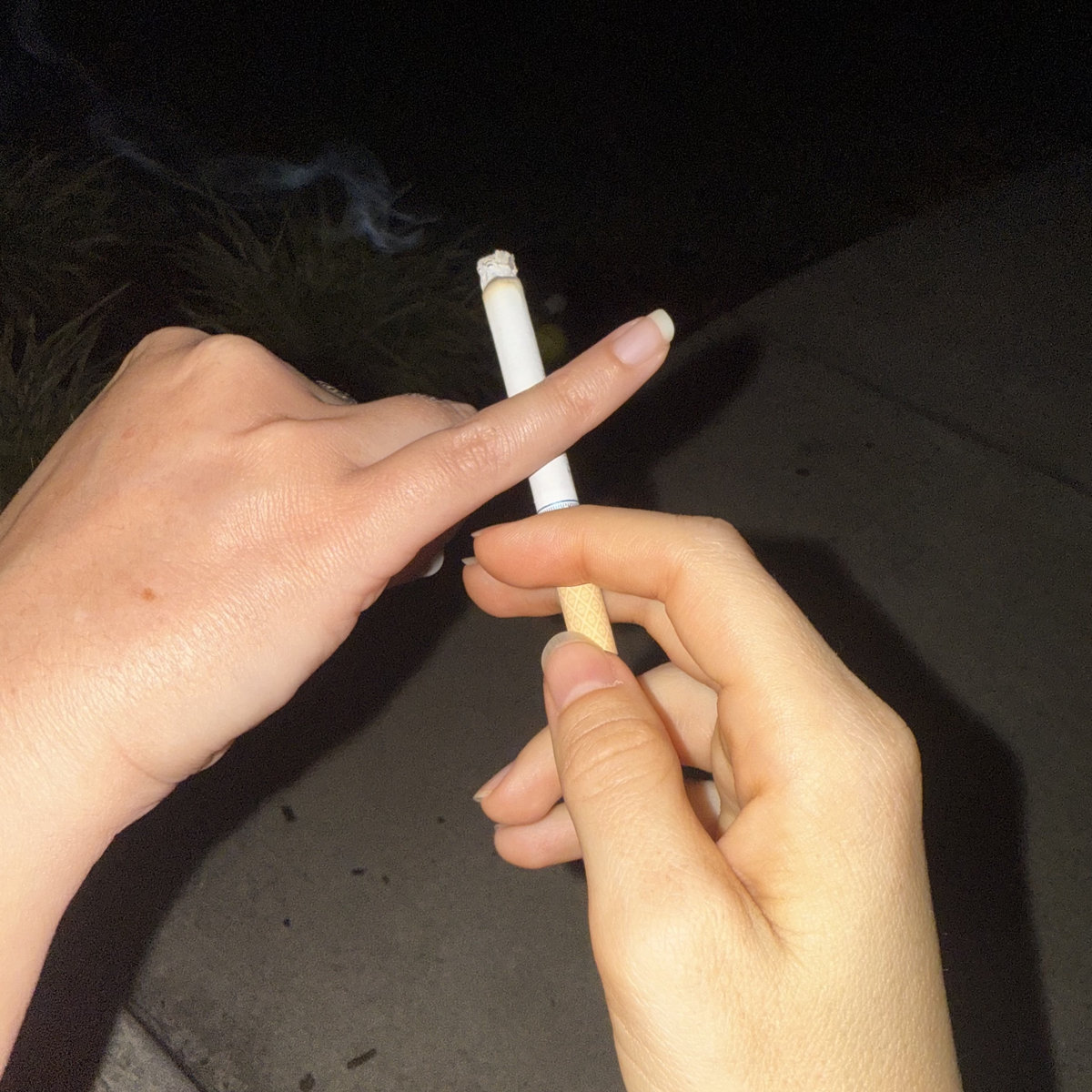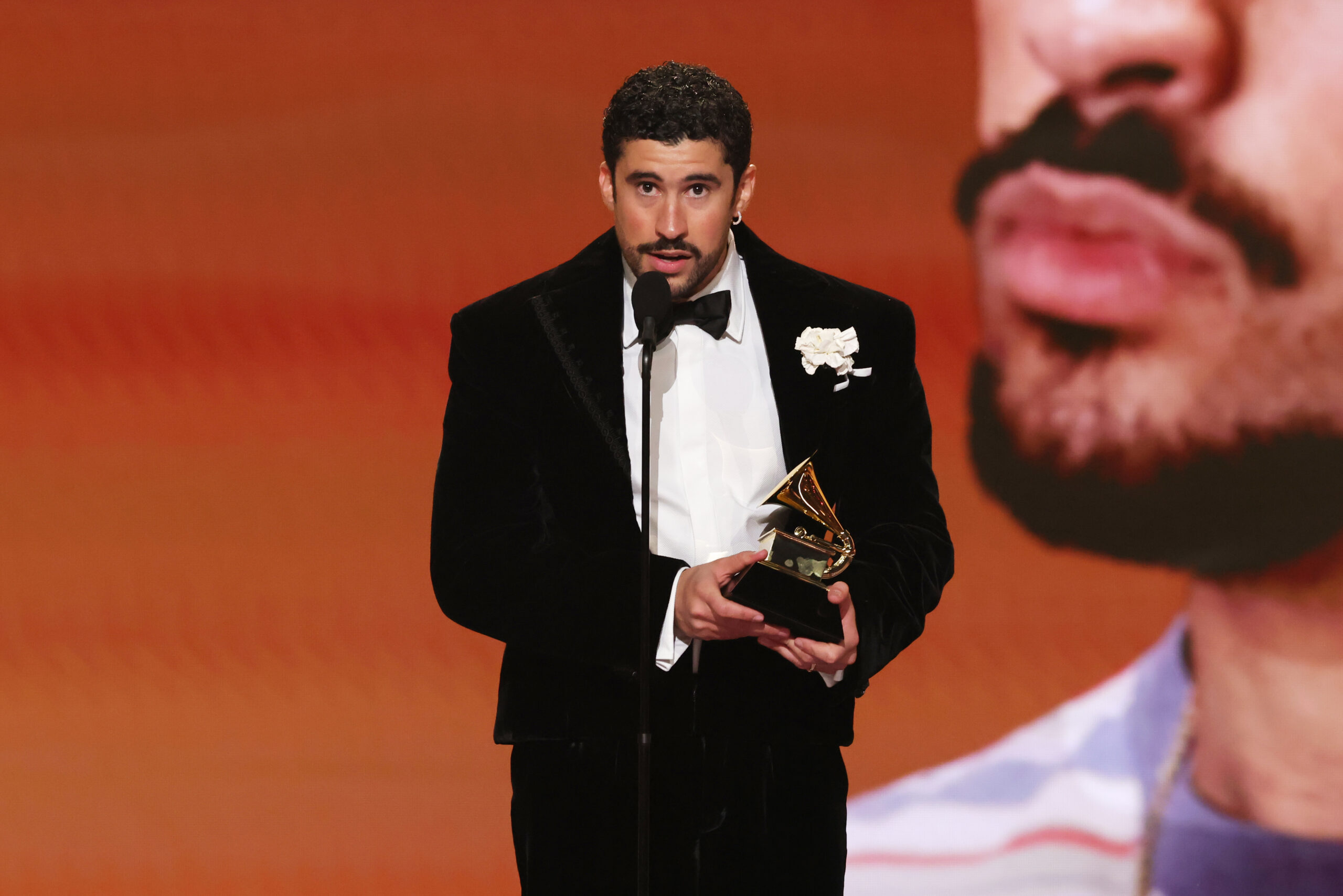Knifeplay appear in our Summer 2024 Issue with cover stars Wallows, Drain, Maya Hawke, the Linda Lindas, and Winnetka Bowling League. Head to the AP Shop to grab a copy.
“I mean, that record’s very much behind me now,” Knifeplay bandleader TJ Strohmer says, reflecting on their 2019 debut album, Pearlty. Earlier this year, that same record that he created in his bedroom got a total remaster, where the songs were put through a tape machine and the loudness was evened out. “I was just grateful to have the chance to get it to that state where I was truly happy with it and it felt good to listen to again.”
Half a decade removed from that record, it’s clear that Knifeplay are a drastically different band today. From the ashes of Strohmer’s solo bedroom recording project, they’ve expanded into a six-piece that prioritize collaboration, production, and intention. That vision coalesced on their sophomore album, 2022’s Animal Drowning, where the band teamed with producer Jeff Zeigler (The War on Drugs, Nothing) to create a collection of dark, spellbinding songs that glided between torrential heaviness and soaring, celestial warmth. Yet when Knifeplay — rounded out by Alex Stackhouse, Joey Ginaldi, Max Black, Johnny Klein, and Johanna Baumann — took the stage at Nothing’s Slide Away festival in their hometown of Philly this past spring, they debuted new material that was starkly different from their previous albums. The songs were longer, stretching toward oblivion and subverting the grand, climatic eruptions that defined their sound.
Read more: Sound and Fury 2024 was another incendiary year
On a Friday afternoon weeks before they open for shoegaze pioneers Ride, the band search to find the right words to describe their new songs. “It’s funny because I feel with the first two records, I fell into this habit of building to these climaxes, and it became our sound,” Strohmer explains. “Now I’m trying to challenge myself to create more of a singular vibe and not have the volume or the intensity — having the song rely more on the melody, the lyrics. It’s song by song, but instead of going from zero to 10, now we’re going from two to five. You feel the dynamics of the song, but it’s not this explosion — and I think that the reason that changed is because I changed.” In a lot of ways, it’s representative of their desire to live in the present as the band break away from shoegaze and head toward greater unknowns. It’s also why Knifeplay don’t sound like anyone else. Just as you start to settle in, they rip the floor out from underneath and fall down a new avenue.
You played the Philly date of Slide Away back in March, where Nothing performed Guilty of Everything in full. Was that a formative record for you at all?
JOEY GINALDI: For me, that was one of the first modern shoegaze records that I heard, and it felt like there were people in the area around us doing stuff like that that wasn’t from the early to mid-’90s and doing it in a way that I thought felt authentic and tangential to a lot of the music that I was listening to at the time. It opened up a world of other underground bands for me.
TJ STROHMER: Also, the aesthetics and the themes of the songs were something that really interested me at the time because it felt closer, and it seemed real — they were dealing with certain aspects that not a lot of bands were dealing with or still even do just because it’s very dark.
You mentioned that you’re only playing new material on your spring tour with Ride. Are you able to tell me what the songs sound like, or will that get too heady?
MAX BLACK: They’re more like long-form songs, trying to slowly build over the course of six to 10 minutes and more acoustically driven, using different elements to build energy than just loudness and noise.
STROHMER: It’s weird. At least for me, because we play them so many times, sometimes I do feel their length now, but I think that for a first-time listener, we build the songs in such a way that it all makes sense, and it’s not as much of a challenge as it might sound with the length and all. I feel like we’re just doing what is coming naturally to us and what feels good.
Interesting. Are you listening to more jazz?
STROHMER: Yeah, I listen to jazz actually, but I never thought of it as an inspiration. Max probably does.
BLACK: The way that I think about it is a lot of times with the long songs in particular, we’re trying to create a moment that you just feel like you’re in, and you’re not thinking about how long it is until it’s passing. Then as the energy builds and it climaxes, it makes sense when you’re there, and it’s not like you’re being smacked in the face with fuzz at the choruses. I feel like we’ve all been on more of a trajectory of being influenced by ambient and instrumental stuff. Maybe jazz.
STROHMER: For me, I would say Bob Dylan would be my biggest influence.
What makes you say that?
JOHANNA BAUMANN: It’s more lyrically focused.
STROHMER: Obviously I would never put myself on that level, but I feel like I see what his mission was, and I really relate to that now. I guess it’s songwriters or even Lou Reed, too, who strive to do more with songwriting.
BAUMANN: It’s not just a personal story — it’s a bigger picture. The concepts that you’re going for, they feel bigger.
JOHNNY KLEIN: Kind of the same reason why Nothing is cool. It’s just a little bit more subversive and intense lyrically. I feel like the lyrics are very important and good on the new stuff. I think that’s more leaned into than intensity with fuzzy guitars and a lot of noise. I mean, the new stuff is not really shoegaze. It feels a lot more classic, a little more mature, and the music just has these comfortable places to sit in. Since the songs are so long, there is a buildup that happens, and it happens at a comfortable pace, but it’s not overdriven.
STROHMER: I think with the first two records, I was really into the home-recording aspect of it, and I was a lot more in touch with what every single instrument was doing, and now I really only focus on the lyrics and writing the song. The first two records were more sonically experimental, or at least that’s where my intention was, and I was just going with impulses so much. Now I feel like through more experience making music and all of us working together, we can set out to do something with a lot more intention. Also as a side note, [something] that I think is cool is everyone in the band has a pretty different main palette, so that’s how we’re working together to create a sound. There’s a lot of overlap, but we’re not necessarily drawing from the exact same well.
Do you consider yourselves perfectionists?
BLACK: Yeah, 100%. We don’t really care, but [TJ] is. [Laughs.]
STROHMER: I mean, it’s all relative, but in my mind, especially when it comes to the final product on the record, there’s no point in doing it if it’s not going to be exactly what you want. At least for the moment that I’m making it, I want it to give me that fulfillment. It’s like you’re chasing a feeling of creating, and I wouldn’t say anything we’ve done is perfect, but in the moment that I called it finished, it seemed perfect.
KLEIN: I think it’s obvious from Animal Drowning that nothing’s perfect, but it’s very ambitious, and there’s a lot of arrangement that has to be thought out.
BAUMANN: Detail-oriented is maybe a better way to describe us than perfect.
STROHMER: I would rather strive for something highly ambitious and fall somewhat short of that than make something that’s very digestible and not challenging at all.
You never make the same album twice.
STROHMER: And we never will, I hope.







